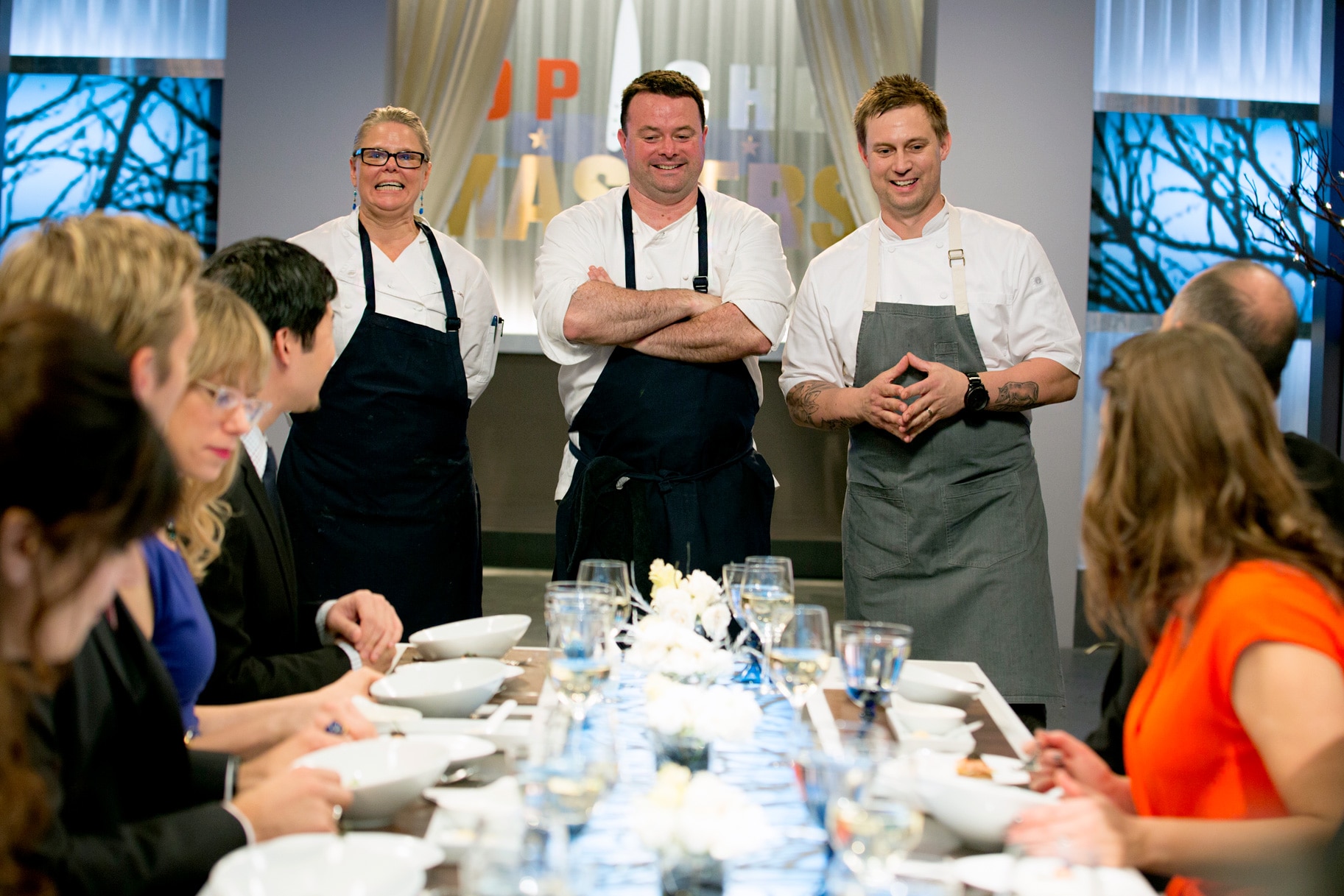Francis Lam: What's on the Menu?
The critic focuses on the first part of the cooking process.

When I talked with Chris Cosentino about cooking last season's Top Chef Masters finale dinner, he said one part of it was easy --the menu planning. The challenge then was to cook four courses, with a theme of letters: a love letter, an apology, a thank you note, and a letter to his future self. Chris' menu came together quickly because, he said, "I know who I am." The wording of the challenge was provocative, but it was really just a way of asking the chefs to tell a story about themselves through their food. It left lots of room for personal interpretation. This year, the finale challenge also asked the chefs to dig into their personal lives but with more specific instruction. Asking Jen, Bryan, and Douglas to make dishes that represented their past selves, their current lives, something from a mentor, and something from a protégé was asking them to encapsulate their careers in four courses. (Only giving them a day and a half to do it meant that no one could lie on a therapist's couch to unpack their memories, which is probably a good thing.) I loved this challenge, and I was happy to not actually be there as a judge, but rather as a diner, as an observer, and as a fan. Without having to worry about who did “better” than the rest, I could just focus on the food and, even more, on the insight into each chef’s culinary life. Who these great chefs thought they were.
I loved the way Douglas’s first thoughts were to his formative cooking experience, the first dish he remembers making in a restaurant, and how it became his mussel billi bi soup. I once had a version of that soup at his restaurant Cyrus in 2007. It had so much mussel flavor I can still taste it. To taste it at finale was, for me, like the past come back to life. And for him, someone now so inspired by the lightness of Japan, to reach back to the glories of a wallop of cream and brine… it felt like he was starting the meal by going back to his roots.
I loved the way Bryan went in another direction, going to the first dish he ever cooked for his wife. I thought his dish was fantastic: the sweet subtlety of crab hovered over the grains and the egg yolk, but honestly, I also could’ve eaten the OG version of a sautéed chicken breast with crab and cream sauce. I kind of miss food with names like Chicken Chesapeake. Who will be the brave soul to bring back ye olde cruise liner food in their restaurant? But anyway, Bryan’s cooking impressed me through the whole season with its creativity and intelligence—I was shocked to realize he hadn’t actually won a challenge until the end—but it was so great to see, in the end, how grounded he feels in his emotional side as a person and as a chef. The dish was light; it felt full of possibility. You could tell his was cooking with the memory of being at the start of something, the excitement of it.
And I loved it when Jen took the “something borrowed” part of the dinner as a chance to nod to her old mentor Wolfgang Puck, from when he was borrowing from Chinese cuisine at Chinois on Main. Her “Chinese duck with shiitake broth, eggplant, daikon, grilled bok choy, and duck wonton” was too busy, too over the top, too 1992… and just freaking awesome. Just like L.A., really. (I used to think that L.A. is stuck in the '80s and '90s, until I realized that, no, it’s just that in the '80s and '90s, the rest of the country was just trying to be like L.A.) I hadn’t had the pleasure of eating her food before Top Chef Masters, but I could see a direct line between what she was “borrowing” and her own food: it pulls flavors from a global palette—pulls them mightily, puts her back into it—to come up with thoroughly American dishes. Her cooking is so muscular, so full of umami and depth and, when she wants to use them, pungent spices.
There were many other dishes that day: thrilling ones (Bryan’s white-on-white dessert), masterful ones (I mean, you try to wrap a piece of fish in individual noodle strands like Douglas did!), just bang-up delicious ones (Jen’s paella gnocchi. That is all.) But I most loved seeing into these chefs’ past and how they went from there to who they are today. I haven’t had a chance to talk with them yet, but I wonder which of them will say that writing the menu was easy. All three of these chefs were so good, their cooking so assured, I wouldn’t be surprised to hear that from all of them.



